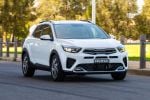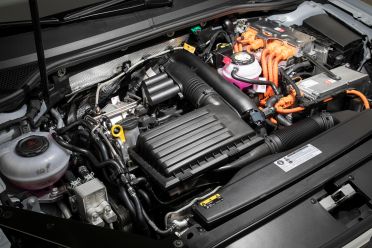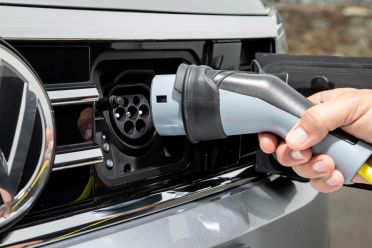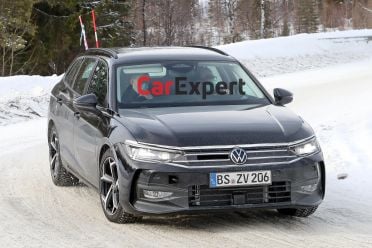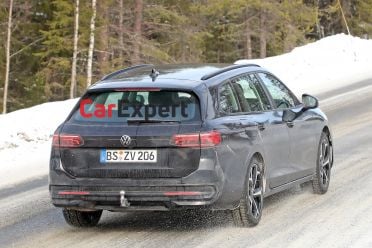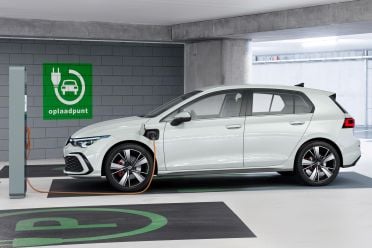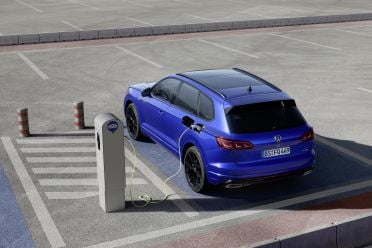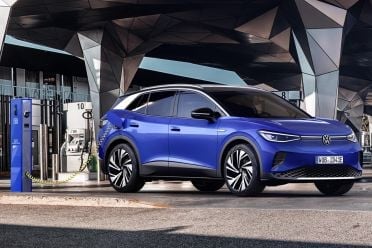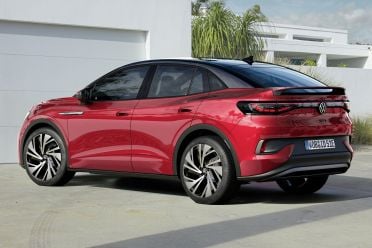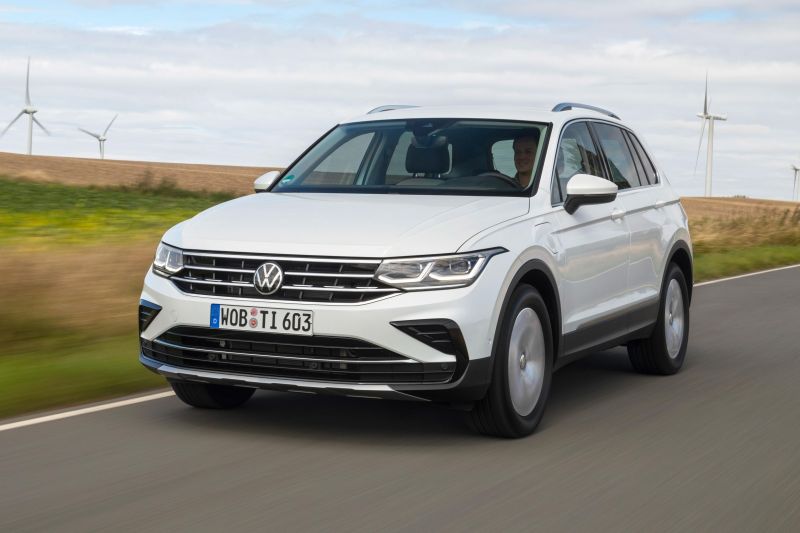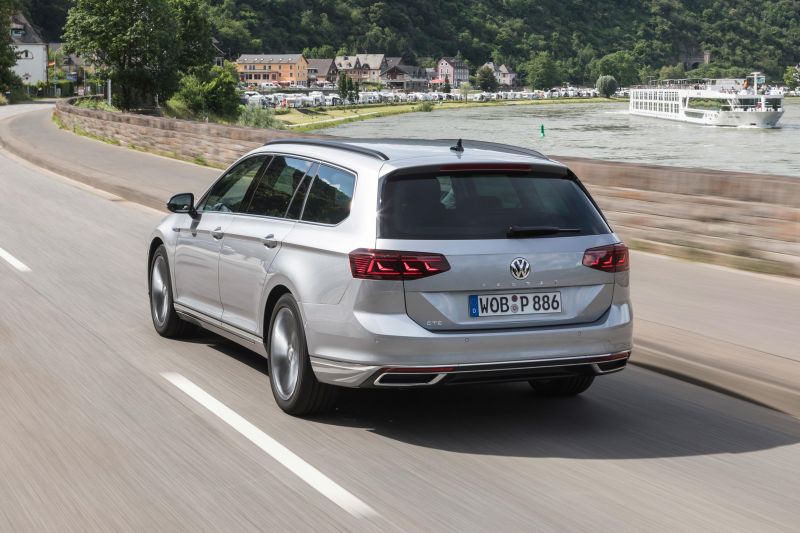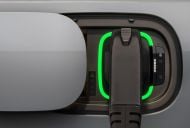The Volkswagen Passat mid-sized wagon could soon be electrified in Australia.
As the German brand continues to release details of its planned electrification rollout over the coming year or so, the brand’s director for passenger vehicles has indicated more plug-in hybrids could be on the way – specifically, the Passat.
VW Australia’s passenger vehicle boss Michal Szaniecki told CarExpert a plug-in Passat could join the Golf GTE and Tiguan eHybrid PHEVs that are on track for a 2023 Australian launch.
“We’re looking into the Passat segment for our plug-in hybrid expansion, that would be a natural thing to do,” Mr. Szaniecki said, “that would probably exhaust our [plug-in hybrid] range, at least for perhaps the foreseeable future.”
The current Passat GTE available overseas runs a version of the 1.4-litre turbocharged plug-in hybrid drivetrain as the Golf GTE and Tiguan eHybrid, quoting system outputs of 160kW and 400Nm.
A 10.4kWh lithium-ion battery pack offers up to 37mi (59.5km) of zero emissions EV range on the WLTP test cycle. VW claims the Passat GTE will also accelerate from 0-100km/h in 7.6 seconds, and hit a top speed of 222km/h.
In overseas markets, the VW Passat GTE has historically been available as both a sedan and wagon, though the Passat sedan was recently discontinued throughout Europe and the UK, as well as Australia.
The Passat GTE is positioned as the flagship variant in markets like the UK that don’t get the more powerful petrol engine options Australia gets, priced from just under the starting point for a new Golf R Wagon, which in Australia lists for $68,990 plus on-road costs.
Should the plug-in Passat adopt similar positioning in the Australian line-up, expect a starting price between $65,000 and $70,000. For context, the current Passat Wagon 206TSI R-Line starts at $66,790 plus on-roads in Australia.
A new-generation Passat has been spied during development testing overseas and is believed to be on track for a 2023 reveal, meaning if VW Australia is planning a Passat PHEV, it could be based on the new model given it’s probably at least 12 months away.
Based on the latest MQB platform (dubbed MQB Evo), the new Passat is expected to grow in most dimensions and offer a more electrified powertrain line-up, including 48V mild-hybrid petrol and diesel engines as well as the brand’s next-generation plug-in hybrid system.
Said PHEV drivetrain will be based around VW’s latest 1.5 TSI evo2 turbocharged petrol engine, which recently launched in the T-Roc crossover in overseas markets. The new engine has been designed to be compatible “with fuels containing ingredients manufactured from renewable energy sources”, as well as “various hybridisation levels”.
In a recent European media release, VW indicated a PHEV system with up to 200kW will “be possible”, while Cupra has said its upcoming Terramar plug-in hybrid SUV – likely to be built on the same underpinnings – will offer 100 kilometres of EV driving range.
Should it make it Down Under, the Passat plug-in hybrid would become Volkswagen Australia’s fourth plug-in hybrid offering – following the Touareg R (due early 2023), as well as the aforementioned Golf GTE and Tiguan eHybrid.
VW offers lower performance Golf and Touareg eHybrid PHEVs overseas, but it’s understood the less powerful plug-in models aren’t a priority for our market.
In addition to a potential quartet of plug-in hybrids, Volkswagen Australia is pushing hard to bring its all-electric vehicles as soon as possible.
At this stage, the ID.4 and ID.5 EV crossovers should kickstart this rollout, currently pencilled in for a late-2023 or early-2024 introduction – though they could also come sooner if the local arm gets its way.
The Volkswagen Group as a whole has been fairly slow to bring in plug-in vehicles – both hybrid and full-electric – despite being a major player in the space globally.
Only Audi offers EVs at the moment, in the form of the e-tron SUV and e-tron GT four-door coupe, while Spanish performance upstart Cupra will bring the Born – twin to VW’s ID.3 hatch – early in 2023.
Czech subsidiary Skoda plans to bring in its Enyaq iV and Enyaq Coupe iV electric vehicles around the same time as the ID.4 and ID.5 – fitting given they’re effectively the same underneath – but Audi has yet to confirm its related Q4 e-tron and Q4 Sportback e-tron for Australia.
Volkswagen, as well as a slew of other brands, have long blamed Australia’s lack of emissions regulations and fuel standards for limited electrified powertrain offerings despite growing demand.
In regions like Europe, manufacturers face hefty financial penalties if their overall fleet of new vehicles sold don’t meet a defined average CO2 emissions figure.
This is why most brands prioritise production of EVs and plug-in hybrids for these markets – keep in mind, factories can only put out a finite figure of units per annum.
With the newly-elected Albanese Labor Government working to introduce a number of measures to drive low- and zero-emissions vehicle uptake – including an emissions reduction policy, tax incentives for EV and PHEV buyers, as well as improving charging infrastructure – it appears the Australian marketplace could change rapidly.
Limited choice hasn’t slowed demand Down Under, however – hybrid, plug-in hybrid and electric sales continue to grow in 2022, with EVs in particular showing massive growth (276.6 per cent year to date).
Stay tuned to CarExpert for all the latest, and let us know your thoughts in the comments.
MORE: Volkswagen Golf, Tiguan PHEVs on track for Australia
MORE: Everything Volkswagen Passat
